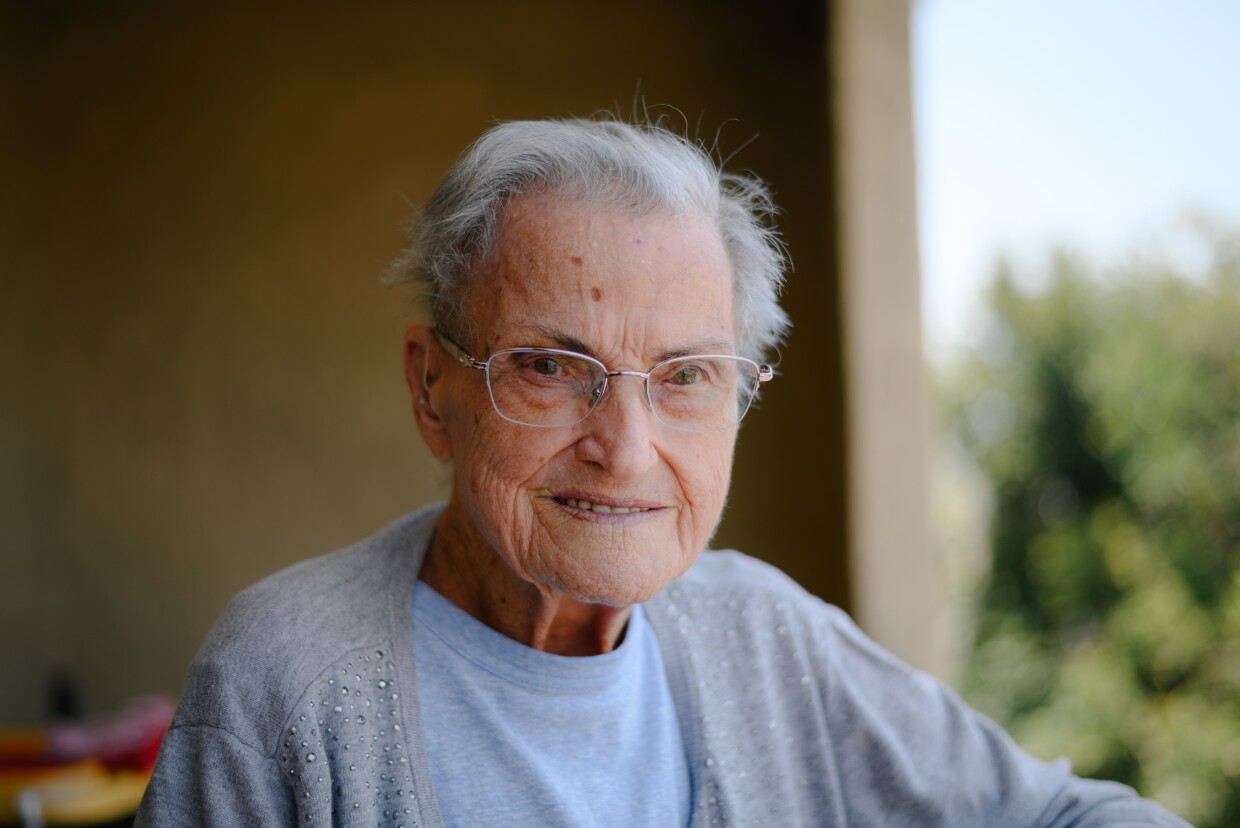As Chula Vista ramps up its enforcement of parking laws, advocates worry the crackdown is hurting seniors. But they have ideas for reform.
___
The car was Erma Currier’s baby. When the city towed it, she didn’t know what to do.
It was a silver 2011 Buick. Currier, 92, had purchased it fresh off the line from a dealership in Escondido with some money left by her late partner. She drove it everywhere, including to the local bowling alley, where she used to compete in the summer and winter leagues. She and her son, Darrel Ward, used it to travel across the country on a trip to Florida.
“It was an extension of her independence,” said Ward, 72, who lives with his mother in northwest Chula Vista.
But one morning this past April, Ward went outside their apartment complex to check on the car, and it was gone. Chula Vista police had seized it. They said it had been parked on the street in the same place for more than three days, which is illegal in many cities.
Ward had to pay nearly $1,000 to get the car back. They used Currier’s credit card to cover the costs. Three months later, she is still paying that debt off and is considering filing for bankruptcy.
Advocates for older people worry Currier’s experience is all too common among seniors, who are much more likely to have disabilities and often live by themselves. They argue enforcement methods in Chula Vista, San Diego and other major cities are hurting the region’s growing older community.
Chula Vista, in particular, has been towing more and more cars for being parked too long in the same place, data obtained by KPBS show. The city has seized over 3,500 cars for being parked too long in the same place since 2015. Those numbers dipped at the beginning of the pandemic. But last year, the city recorded its highest number yet at 567.
By comparison, the city of San Diego seized more than 17,000 vehicles for violating the 72-hour rule in that same period since 2015. But the number of cars it towed for that same violation has remained relatively steady over recent years — and is down significantly from before the pandemic.
It’s hard to say exactly how many of those cars were owned by seniors in Chula Vista, since that’s not something the police department tracks. Chula Vista police officials said they increased towing because of surging complaints about abandoned vehicles. But some city leaders said they were aware of the problem and acknowledged that the city’s approach to towing may need to be updated.
And some advocates said there are simple procedural changes that Chula Vista and other cities could make that would protect seniors — and other residents — from being pushed into debt for forgetting to move their cars.
“It's just a little sympathy,” said John Acosta, a local advocate for older residents. “We need to take care of the senior community.”
Cities face criticism over towing practices
California cities have faced sharp criticism over their towing practices. Researchers have shown towing in San Diego, San Francisco and Los Angeles disproportionately hurts poor residents, Black and Latino communities and unhoused people.
In 2019, a coalition of civil rights and legal aid organizations published a biting report, “Towed Into Debt: How Towing Practices in California Punish Poor People,” scrutinizing towing programs across the state. It found that those major cities routinely seized legally parked cars for minor violations that pose little threat to public safety.
More than a quarter of those seizures were what researchers have called “poverty tows.” That includes a car being taken for having unpaid parking tickets, having expired registration and being parked in one place for more than 72 hours.
That last kind of violation, the 72-hour rule, has also become a focus for senior advocates like Acosta. Asking an older person with disabilities to move their car every three days is not a small task, he argues.
And getting your car back after it’s towed can be extremely expensive. For San Diegans, the average cost after just one day is $282 — a price that continues to climb by $41 every day. In many cases, the owners of those cars end up losing their vehicles because they can’t afford the tickets and fees, potentially upending their work and personal lives.
For people living in Chula Vista, that cost is even higher at a minimum of $450 after just one day.
Credit: Michael Wayne and Kori Suzuki/KPBS
Reports and audits have focused more on poor residents and less on how towing practices are specifically affecting older Californians. But seniors’ stories have been a fixture in that research and in testimony before the state legislature.
“My car being towed last December went beyond extreme hardship,” 71-year-old Marta Roberts told the state Senate Standing Committee on Transportation last year. “It made even the basics of human subsistence truly impossible.”
San Diego County is also growing older. Since 2020, the number of people 65 and older was the only age group to grow in the metro, with many of those older residents living isolated and alone.
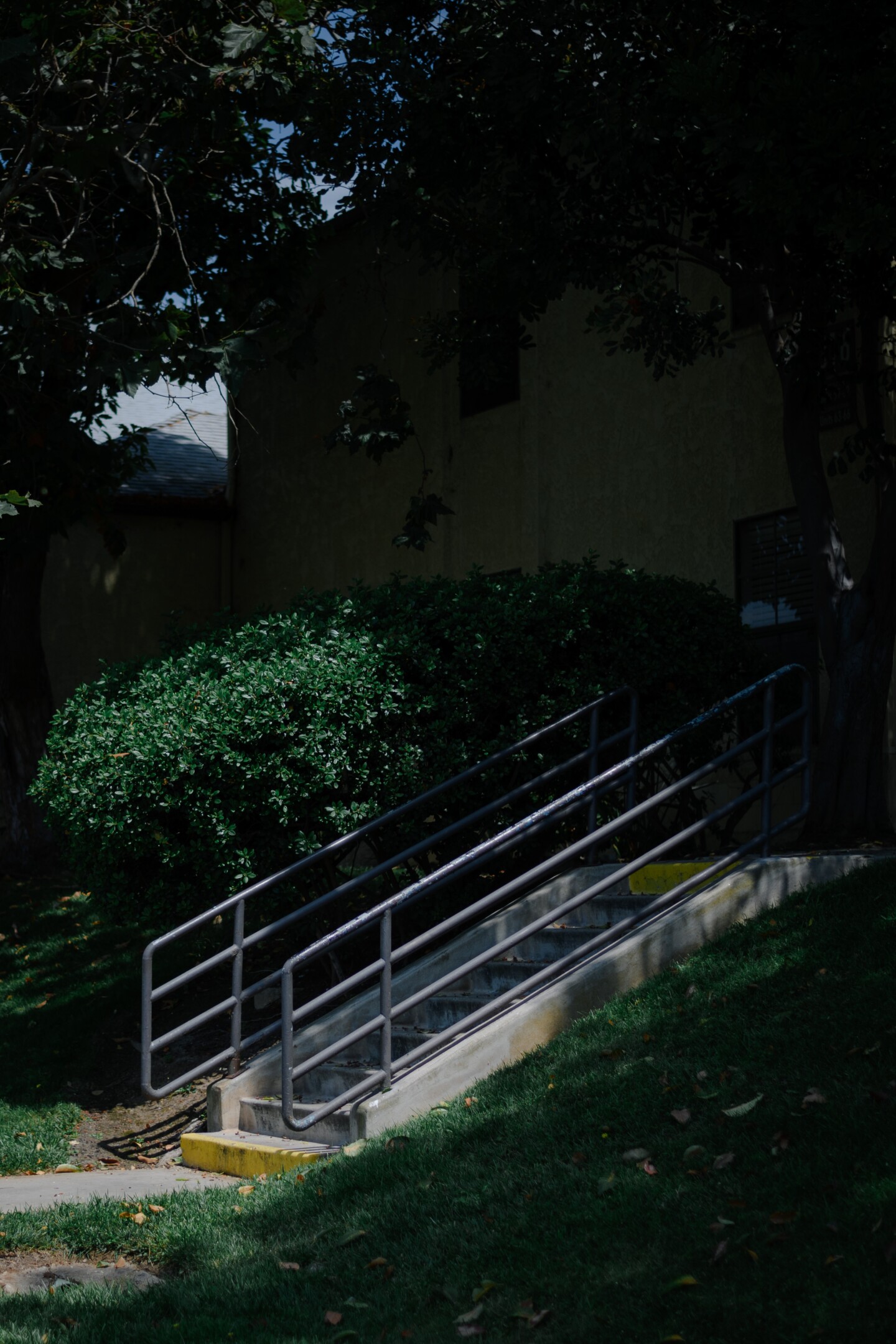
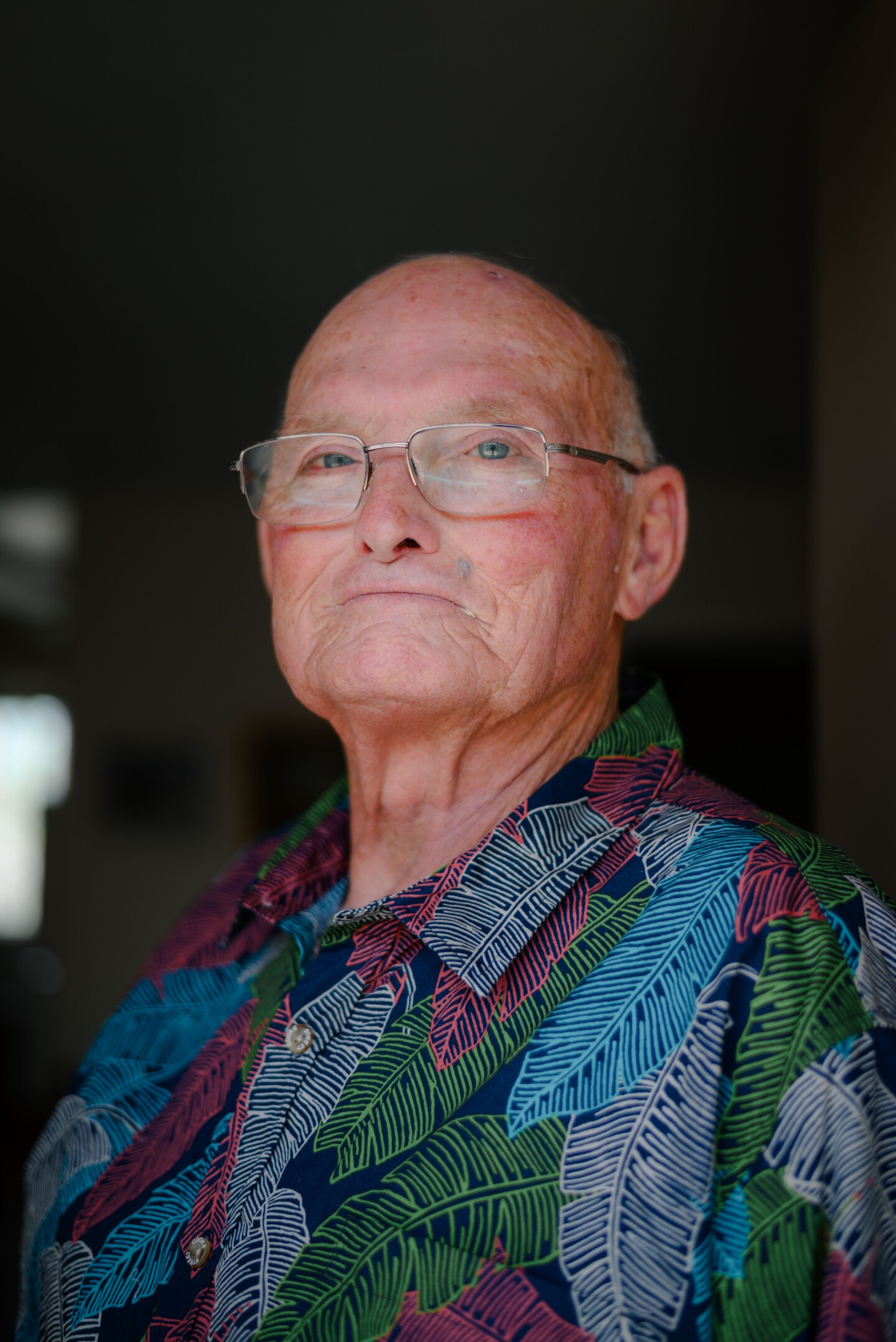
‘This one little thing’
For Currier and Ward, the loss of the Buick and their fight to get it back was the latest in a series of financial stressors.
Like many seniors, the two of them are retired and live on fixed incomes. Currier worked for decades as a seamster at the Naval Training Center, now known as Liberty Station. Ward, a former computer engineer, retired early after he was diagnosed with a rare blood cancer that affects his ability to concentrate and also strains their finances.
Their housing costs have grown too. In 2011, Ward and Currier moved into a northwest Chula Vista senior complex together to save money. Since then, the rent for their small, two bedroom apartment has risen by several hundred dollars, Ward said.
Still, Currier and Ward both had lots of time to enjoy life — enabled, in part, by the fact that they both had their own vehicles. Ward would drive to the park to go for long walks. Currier would go bowling with friends every week and would often visit the casinos in Reno.
More recently, Currier’s life had slowed down. Those weekly bowling outings have been replaced by occasional visits to the doctors office. But she was still able to get to her appointments and the grocery store when she needed to.
So when she learned the city had seized her car, her heart sank.
“I felt bad,” Currier said. “Because I knew I couldn’t take care of it on the street.”
When Ward realized that the car was missing, he immediately started making calls, trying to figure out how to get it back. He said he found it difficult to get information from Chula Vista police. He ended up having to make several trips between the police department building and the impound lot in Otay Mesa.
The towing company refused to release Currier’s car unless she was there, forcing Ward to return home and drive her to the impound lot right after she had been discharged from the hospital.
In total, they ended up having to pay $996 ($175 to the city and $821 to the towing company) to get Currier’s car released. By then, the car had been held in storage for a week.
That kind of cost would be a major financial hardship for many Americans right now. Almost half of the country doesn’t have enough money saved to cover an unexpected $1,000 expense, according to a survey by the banking industry publication Bankrate earlier this year.
Ward blamed himself for what happened. He assumed that Currier’s state-issued disabled parking placard, which allows holders to park in many places for free and without time restrictions, would enable them to park on the street without having to worry. But he didn’t realize that they were still subject to local 72-hour parking rules.
“It was my fault,” he said. “She had counted on me to understand and know what limitations and what rights we had.”
But Ward and Currier are also frustrated and disheartened that the police didn’t give them more notice or reach out to them somehow, particularly because Currier’s bright blue disabled license plate was clearly displayed.
“Why in the world didn’t someone call us?” Ward said.
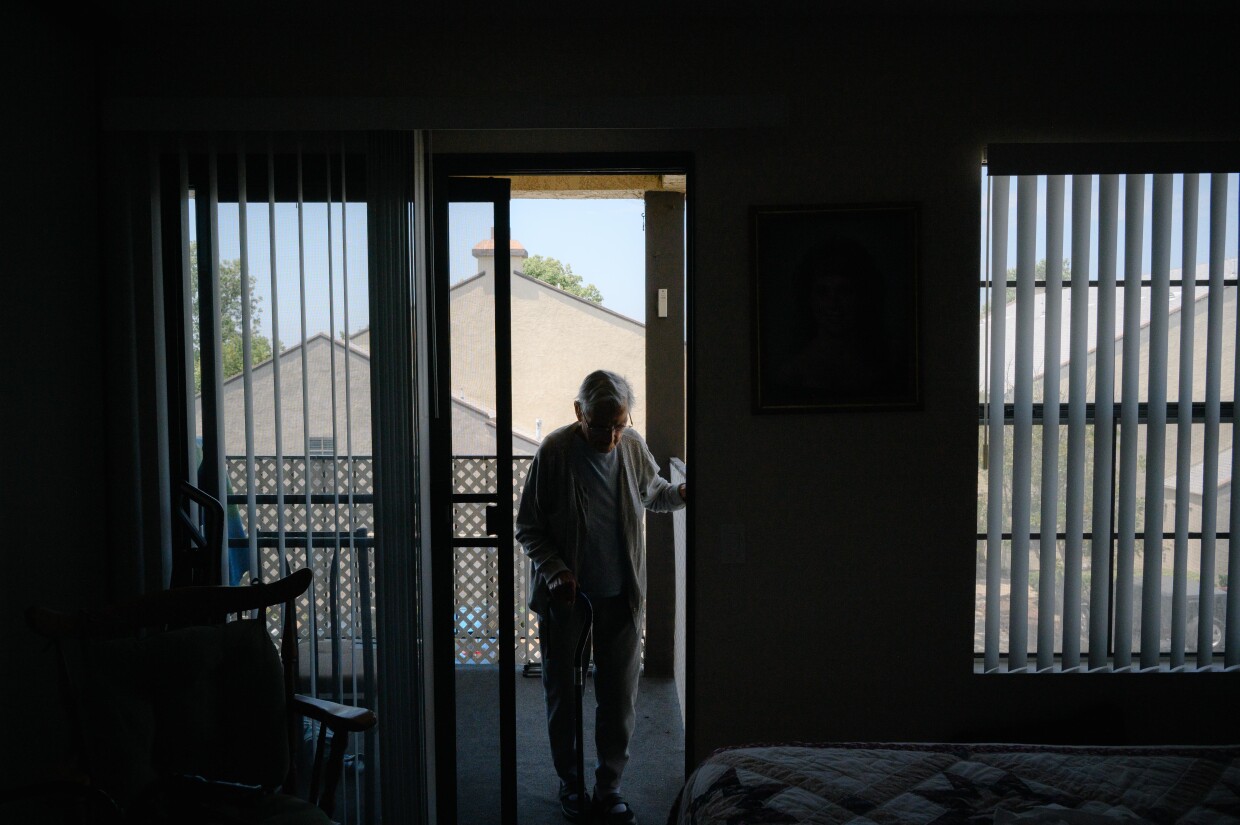
Chula Vista officials respond
Chula Vista police officials defended their towing practices. They said they couldn’t discuss specifics of Ward and Currier’s case without permission, but said their process was designed to give residents a fair warning before seizing any vehicles.
Traffic Lieutenant Rusty Rea said when a car is reported for violating the 72-hour rule, the department will leave a notice on the windshield and give residents another three days to move it.
If the department does tow someone’s car, they will then notify the owner by mail. Officers have no other way of reaching the owner, Rea said, since DMV registrations only include an address on file — not a phone number.
“We're not seeking out the elderly or people who are in poverty or anything like that,” he said. “We're dealing with neighborhoods, whether they be poor neighborhoods or neighborhoods that are a little more well off, that are complaining about people leaving their cars on the street.”
Rea said the vast majority of tows are triggered by complaints from neighbors through the city’s app for reporting non-emergency issues. Still, he acknowledged the city doesn’t change its approach at all when it comes to cars with disabled placards. He said everyone, regardless of age and ability, is required to follow the law.
“They're still subject to making sure that they move their cars on the roadway regularly and that they're not using city streets as their personal storage facility,” he said.

Advocates have ideas for reform
Recent years have seen wide-ranging efforts to rein cities’ power to seize vehicles.
In 2019, then-state Assemblymember David Chiu proposed making 72-hour violation tows illegal statewide, along with other kinds of poverty tows. The American Civil Liberties Union and other legal aid organizations backed that bill, along with seniors and disability rights groups like San Francisco Senior And Disability Action. But it ultimately fizzled out.
Another version of that same bill, AB 1082, is currently making its way through the legislature. Spearheaded by Assemblymember Ash Kalra, this latest version would ban several kinds of poverty tows, but doesn’t include the section on 72-hour violations. Still, a number of those same civil rights organizations have signaled their support.
For now, the power to change local towing policy largely falls to cities themselves.
Cities like San Francisco have adopted text-before-tow programs that allow residents to enroll their phone numbers and vehicle information into a database. If the city is preparing to tow their car, they will alert the owner through a text, giving them a limited window to move it before the tow truck arrives.
“I think every city government shouldn't just assume that the way things are being done are the way they should always be done,” said Manny Yekutiel, the former-San Francisco transit board director who helped create the program in 2021. “We should always be looking at the cost of our services to members of the public.”
Acosta, the senior advocate, said cities should also consider changing the process for cars with disabled parking license plates and placards. He suggested police should give those owners extra time to respond to the warning or use the address on file to do a wellness check before towing those cars.
“I think it is inhumane for anybody to take somebody's car with a disabled plate,” Acosta said.
Chula Vista Councilmember Jose Preciado agreed that city leaders may need to take another look at the city’s towing policies.
“What I would hope is that we can find a way to prevent that from happening any time in the future so that this doesn't happen,” he said.
Still, like other officials, Preciado largely defended the city’s approach. He pointed out that they offer other services to support seniors transportation needs, including a free, door-to-door shuttle service. He also said the city is trying to balance different priorities, including making it easy to build more housing by throwing out certain parking requirements.
He was also hesitant about the idea of directing officers to visit residents' homes, arguing that could violate their privacy.
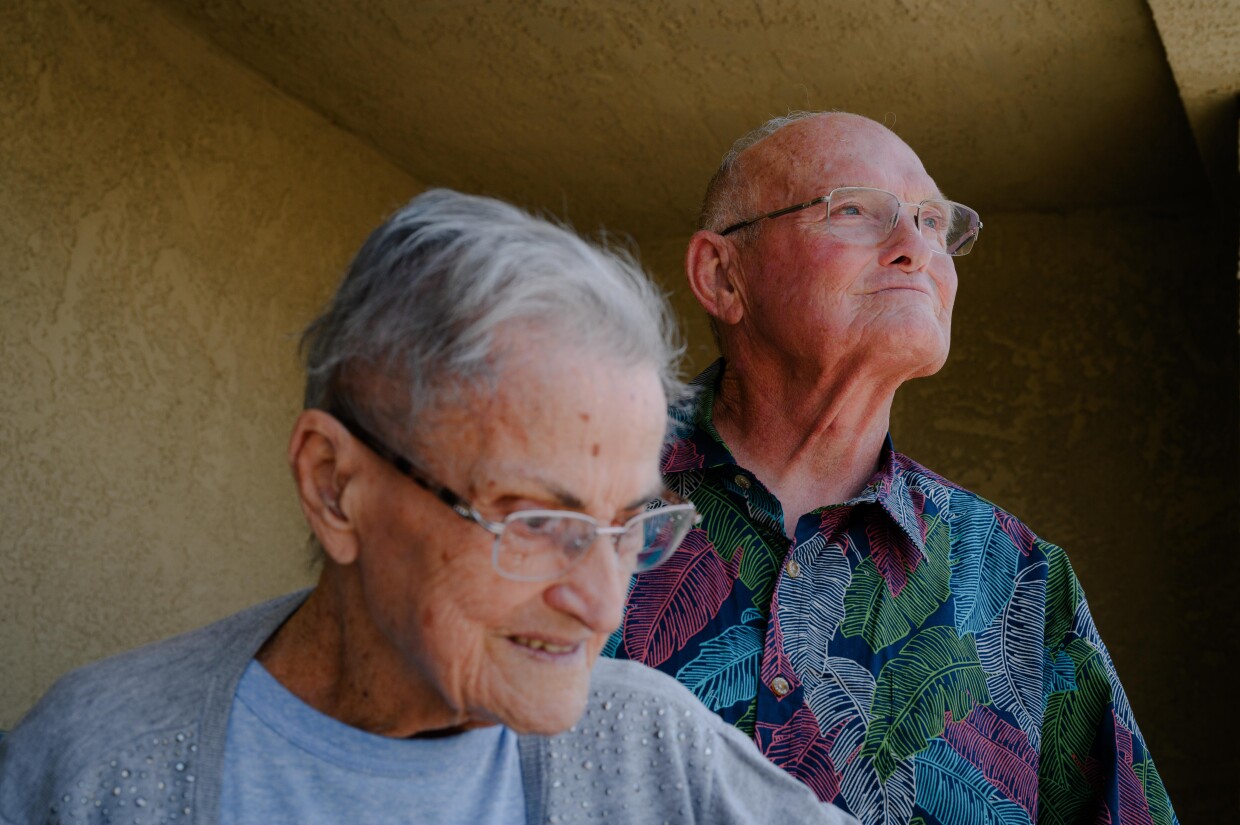
Ward and Currier both agree that the city’s approach needs to change. Ward said the $1,000 bill has completely destabilized their lives and felt the city should do more to see things from a senior’s point of view.
“If someone would do a wellness check on the phone or even at the door,” he said. “That's not writing a ticket, you know — that's being part of the community.”
Currier does have her car back, at least. She and Ward decided they wouldn’t be able to move it every three days so they left it with Ward’s daughter in Wildomar, Calif. while they decide what to do next.
They did discuss selling it, which Ward thinks would probably be the smartest option. But in the end, he said, they couldn't let it go.

